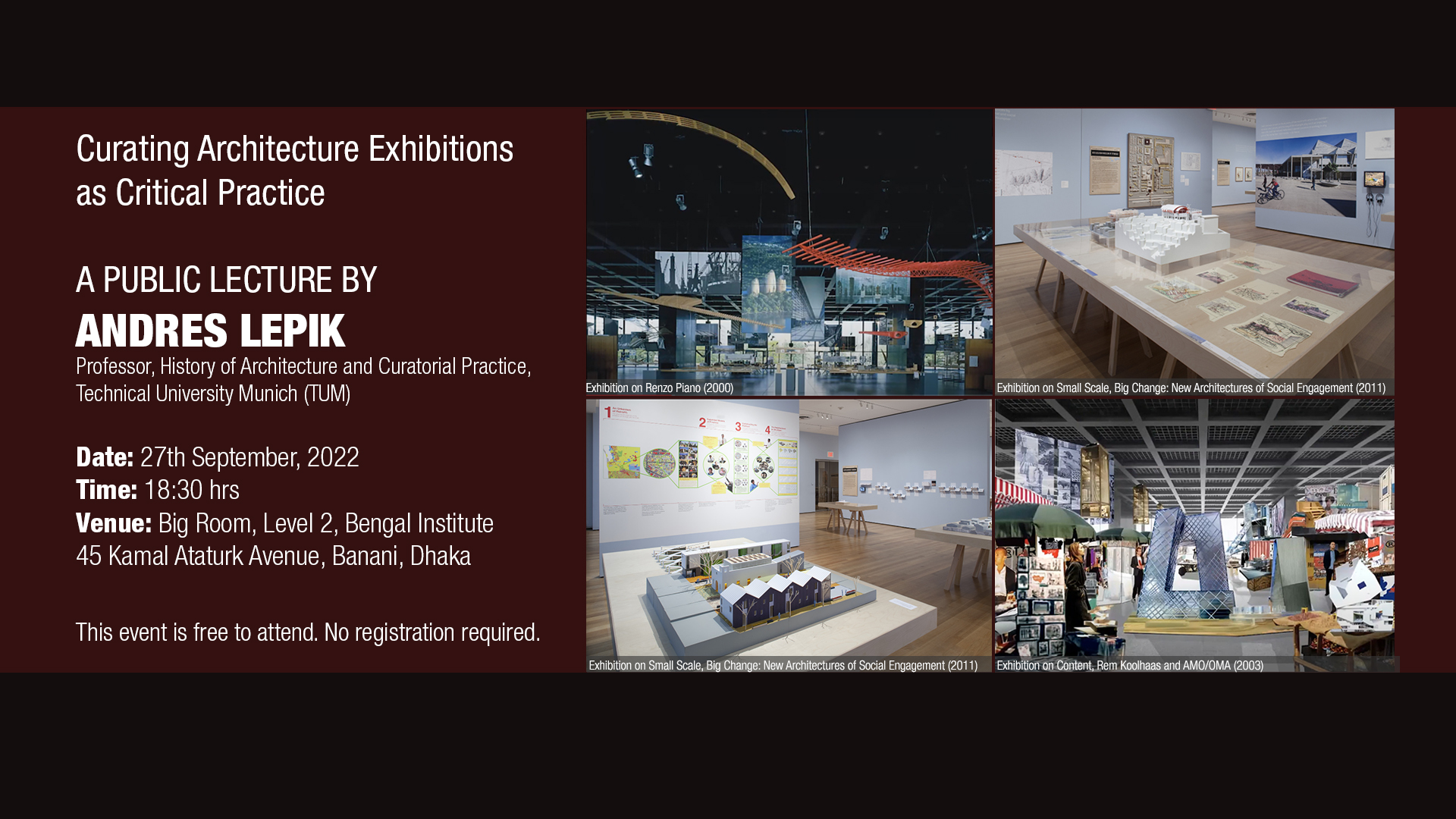
Curating Architecture Exhibitions as Critical Practice - A Public Talk by Andres Lepik
Wed 21 Sep - Wed 21 Sep' 22
Andres Lepik delivered a talk on “Curating Architecture Exhibitions as Critical Practice” on 27th September at Bengal Institute. He spoke about his experience as a curator over the last thirty years, the key elements of curating an architectural exhibition and how his priorities regarding what to exhibit have shifted over time. He also shared his experiences of working on some of his notable exhibitions such as “Renzo Piano” (2000), “Content. Rem Koolhaas and AMO/OMA” (2003) and “Francis Kéré. Radically Simple” (2016/17).
Lepik is a renowned curator, writer and organizer of exhibitions on architecture, and Professor of History of Architecture and Curatorial Practice at Technical University of Munich.
Andres Lepik studied art history and completed a PhD on architectural models in the Renaissance. In 1994 he started as curator at Neue Nationalgalerie in Berlin, presenting “Renzo Piano” (2000) and “Content. Rem Koolhaas and AMO/OMA” in 2003. From 2007 to 2011, he was the curator at the Architecture and Design Department in MoMA, New York, where he exhibited “Small Scale, Big Change. New Architectures of Social Engagement”. In 2011/12, he was the Loeb-Fellow at Harvard University’s Graduate School of Design.
Since 2012, he has presented numerous exhibitions in Munich, such as “AFRITECTURE. Building Social Change”, (2013/14), “Lina Bo Bardi 1OO” (2015), “Francis Kéré. Radically Simple” (2016/17) and the recent work “Access for All. São Paulos Architectural Infrastructure” (2019). Andres Lepik has published numerous books and articles, and lectured in many universities worldwide.
View this post on Instagram
Publication





